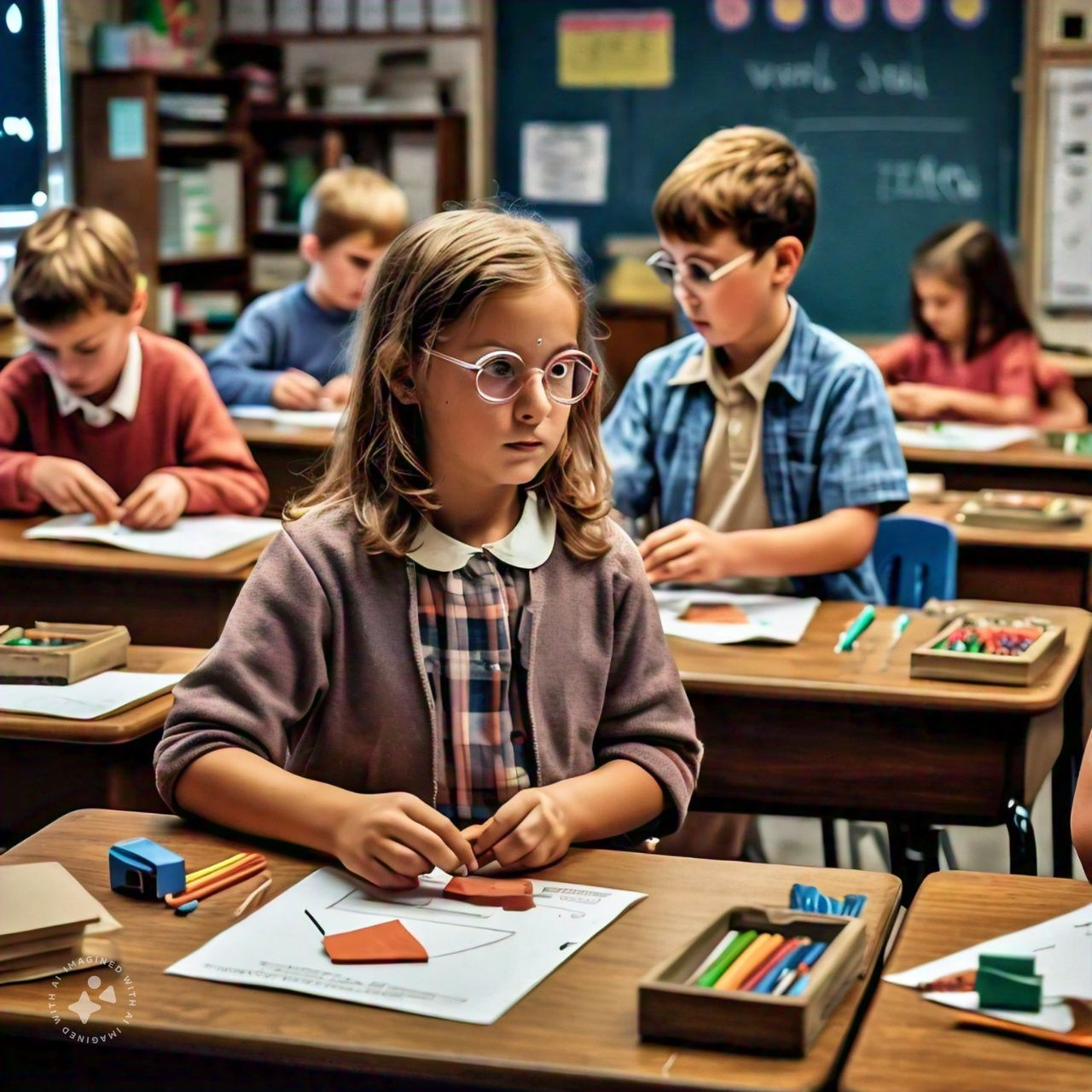Introduction:
For decades, standardized tests have been the go-to method for measuring student achievement. While these tests provide a uniform way to assess academic performance, they often fail to capture the full scope of a student’s abilities, creativity, and potential. At DWPS, the Top 10 Schools in Greater Noida where as education evolves, there is a growing recognition that success in school—and in life—goes beyond test scores. This shift toward a more holistic approach to education emphasizes the importance of measuring student achievement in ways that reflect their unique strengths, interests, and experiences.
The Limitations of Standardized Testing
Standardized tests were originally designed to provide an objective measure of student learning, ensuring that all students, regardless of background, were assessed on the same scale. However, this approach has significant limitations. These tests primarily assess a narrow range of skills, such as reading comprehension, mathematical ability, and rote memorization, while neglecting critical areas like creativity, emotional intelligence, and problem-solving abilities.
Moreover, the pressure to perform well on standardized tests often leads to a focus on “teaching to the test.” This approach can stifle creativity, limit deep learning, and reduce the emphasis on subjects that are not tested, such as the arts and physical education. Students who excel in non-academic areas may feel undervalued or overlooked in an environment where test scores are the primary measure of success.
A Holistic Approach to Measuring Student Success
In response to the limitations of standardized testing, educators are increasingly adopting a more holistic approach to measuring student achievement. This approach takes into account a broader range of skills and experiences, recognizing that success is multifaceted and cannot be captured by a single test score. By assessing students in a variety of ways, schools can provide a more accurate picture of their strengths, challenges, and overall growth.
A holistic assessment framework includes several components:
- Academic Achievement: While standardized tests may remain a part of the assessment process, they should be supplemented with other forms of academic evaluation, such as project-based assessments, portfolios, and oral presentations. These methods allow students to demonstrate their knowledge in ways that align with their learning styles and interests.
- Social and Emotional Development: Social and emotional learning (SEL) is a critical component of a student’s overall development. Schools are increasingly incorporating SEL into the curriculum, focusing on skills such as empathy, self-awareness, and conflict resolution. Measuring a student’s growth in these areas can provide insight into their emotional well-being and ability to navigate interpersonal relationships.
- Creativity and Innovation: In a world that values innovation, the ability to think creatively and solve complex problems is crucial. Schools can encourage creativity by providing opportunities for students to engage in hands-on, experiential learning projects. These projects can be assessed through rubrics that evaluate a student’s ability to generate original ideas, collaborate with others, and apply their knowledge in real-world contexts.
- Physical and Mental Well-being: Physical health and mental well-being are essential for academic success and personal fulfillment. Schools can measure student well-being by tracking participation in physical education, sports, and extracurricular activities. In addition, schools can conduct wellness surveys and provide resources for mental health support, recognizing that a healthy mind and body are key components of success.
Project-Based Learning: A Key to Holistic Assessment
One of the most effective ways to move beyond standardized testing is through project-based learning (PBL). PBL is an instructional approach that emphasizes student-centered learning through real-world projects and challenges. Unlike traditional tests, which measure a student’s ability to recall information, PBL assesses their ability to apply knowledge in practical situations.
In a project-based learning environment, students are encouraged to take ownership of their learning by working on projects that interest them. These projects often involve collaboration, critical thinking, and problem-solving, providing students with opportunities to develop skills that are essential for success in both academic and professional settings.
For example, a science class might task students with designing a sustainable energy solution for their community. In completing this project, students would need to research existing technologies, develop a plan, and present their findings to the class. This type of assessment goes beyond rote memorization, challenging students to think critically and creatively while also demonstrating their ability to communicate their ideas effectively.
Portfolios: Showcasing Student Growth and Achievement
Another method for measuring student success is the use of portfolios. Portfolios are collections of student work that showcase their progress, achievements, and areas for improvement over time. Unlike standardized tests, which provide a snapshot of a student’s performance at a single moment, portfolios offer a more comprehensive view of their learning journey.
A well-rounded portfolio might include essays, artwork, science experiments, and reflective writing. Students are often encouraged to curate their portfolios themselves, selecting pieces that they feel best represent their growth. This process promotes self-reflection and helps students take ownership of their learning.
Portfolios can be particularly beneficial for students who excel in non-traditional areas. For example, a student with strong artistic abilities might include a series of paintings or drawings that demonstrate their creativity and attention to detail. This allows educators and parents to gain a deeper understanding of the student’s strengths and areas for further development.
The Role of Social and Emotional Learning in Measuring Success
Social and emotional learning (SEL) is an essential component of a well-rounded education. SEL focuses on teaching students the skills they need to manage their emotions, build healthy relationships, and make responsible decisions. These skills are critical for success in school, work, and life, yet they are often overlooked in traditional assessments.
Incorporating SEL into the assessment process allows educators to measure student success in areas such as empathy, teamwork, and emotional regulation. These skills can be evaluated through a variety of methods, including peer reviews, self-assessments, and teacher observations.
For example, a teacher might assess a student’s ability to work effectively in a group by observing their interactions during a collaborative project. Did the student listen to their peers’ ideas? Were they able to resolve conflicts in a constructive manner? By assessing these social and emotional skills, educators can provide valuable feedback that helps students grow both academically and personally.
The Importance of Growth Mindset in Redefining Success
One of the key principles of a holistic approach to education is the concept of a growth mindset. A growth mindset is the belief that abilities and intelligence can be developed through effort, persistence, and learning from mistakes. This stands in contrast to a fixed mindset, which holds that intelligence is static and unchangeable.
When students are encouraged to adopt a growth mindset, they are more likely to embrace challenges and view failure as an opportunity for growth. This shift in mindset is essential for fostering resilience, perseverance, and a love of learning—qualities that are not easily measured by standardized tests.
Educators can promote a growth mindset by providing students with opportunities to reflect on their progress, set goals, and celebrate their achievements. Assessments that emphasize effort and improvement, rather than simply measuring outcomes, help students develop the skills and attitudes needed for lifelong success.
Rethinking Grading Systems
Another way to move beyond standardized testing is by rethinking traditional grading systems. Letter grades and numerical scores often reduce a student’s achievements to a single number, which may not accurately reflect their abilities or effort. A more comprehensive grading system would take into account a student’s growth, creativity, and social-emotional skills, in addition to their academic performance.
Competency-based grading is one approach that is gaining traction in schools. Instead of assigning grades based solely on test scores, competency-based grading assesses students on their ability to demonstrate mastery of specific skills. This approach provides a more nuanced view of a student’s abilities and allows for personalized learning paths.
For example, a student might be assessed on their ability to analyze complex texts, solve mathematical problems, or collaborate with peers. By focusing on specific competencies, educators can provide targeted feedback that helps students improve in areas where they may be struggling.
The Role of Teachers and Parents in Redefining Success
Teachers and parents play a crucial role in redefining success and supporting students’ holistic development. Educators must move beyond the role of mere knowledge transmitters and become facilitators of learning, guiding students in developing a range of skills that go beyond academics.
By creating a classroom environment that values creativity, critical thinking, and emotional well-being, teachers can help students see that success is not limited to test scores. Incorporating different forms of assessment, such as portfolios and project-based learning, encourages students to take ownership of their learning and explore their interests.
Parents, too, can support this shift by recognizing that academic success is only one piece of the puzzle. Encouraging children to pursue their passions, engage in creative activities, and develop social-emotional skills will help them become well-rounded individuals who are prepared for the challenges of the future.
Conclusion: A New Definition of Success
At DWPS, the Top 5 Schools in Greater Noida where the world continues to change, so too must our definition of student success. Standardized tests, while useful in some contexts, are not enough to capture the full range of a student’s abilities and potential. By adopting a more holistic approach to assessment—one that values creativity, emotional intelligence, and real-world problem-solving—schools can provide a more accurate and meaningful measure of student achievement.
This redefined approach to success not only benefits students but also prepares them for a future where adaptability, collaboration, and innovation are essential. As we move forward, it is crucial to continue exploring new ways to assess student achievement that go beyond standardized tests, ensuring that every student has the opportunity to thrive and succeed in their unique way.

